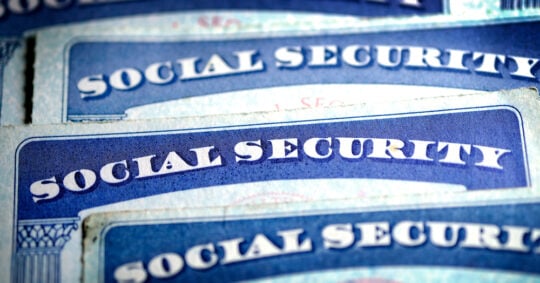Does a Citation Go On Your Record? Our Expert Answers
Cindy Ellis - August 19, 2023

Citations are an important part of your record, and understanding how they appear on it can help you when applying for work, specifically work that requires driving. On the other hand, employers need to know what types of citations are on someone’s record to ensure they’re safe behind the wheel. The good news is that we can help you understand if a citation appears on your record.
Moreover, we’ll show you how to view your driving record or someone else’s driving record. Read on to learn everything you need to know below.
What Is a Citation?
A citation is a type of traffic record that’s issued by a police officer. Therefore, they’re a type of ticket. Citations are written during traffic violations, including speeding, reckless driving, and parking in the wrong spot. Many states use a point system where citations remain on your license for a handful of years. People with too many points can lose their license, which will appear on someone’s record.
As with other types of criminal records, there is usually a look-back period depending on your state. For example, some states may only permit background checks to go back several years. Citations can also be more severe than violations or misdemeanors. For example, grand theft auto is considered a felony and will appear on your criminal record.
What Kinds of Violations Are Citations Used For?
A citation, or traffic ticket, can be used for several types of traffic violations. The two most common types are moving violations and non-moving violations. Moving violations will only happen if you’re moving in your vehicle. Some examples include speeding, reckless driving, and evading pursuit. Non-moving violations happen when your vehicle is parked. This usually means parking lots, but some states consider interactions at red lights to be non-moving violations.
What Are the Moving Violations That You Can Be Issued a Citation For?
Depending on where you live, and the police force that controls the roads, the terminology for these violations may be unique. However, the rules for driving are pretty consistent for most states, and you’ll only get a citation if you break one of them.
Some common reasons to get citations are listed below:
- Going through red lights
- Disregarding traffic signals like stop signs
- Not wearing a seatbelt while you’re driving
- Speeding
- Driving without a license
- Not having the proper registration
- Driving without insurance
- Reckless driving
- Racing another driver
These are only some examples of moving violations that can appear on your driving record.
What Are the Non-Moving Violations You Can Be Issued a Citation For?
Citations for non-moving violations are common. These are citations like parking where you’re not supposed to. It’s important to note that non-moving violations carry less of a penalty than most loving violations. However, having many non-moving violations can begin to impact your driving record, and ignoring the problem will result in expensive fines.
Some examples of non-moving citations are found below:
- Parking in a handicapped spot without a handicapped passenger or sticker
- Parking next to a fire hydrant
- Not paying a parking meter
- Staying past your allowed time from a parking meter
- Parking in work zones or anywhere else is not permitted
- Red light cameras if you stop over the white line (depends on the state)
These are the most common examples of non-moving violations. Always pay attention to signage in front of parking spots to avoid any problems.
What Are the Penalties for Citations?
Penalties for citations can vary in severity depending on the type of infraction. Some citations will require you to appear in court, while others will just cost you a few hundred dollars.
Learn more about some of the penalties below.
- Warnings: Usually issued after your first driving offense, you won’t get a ticket or citation.
- Fines: Acts like speeding require you to pay a fine to the state.
- Insurance rate increase: When you have more points on your license, your insurance rate will increase. Points are added to your license after moving violations.
- Misdemeanor: Misdemeanors are considered “less severe” crimes, but it’s still possible to pay a hefty fine or serve up to one year in jail.
- Felonies: A felony charge for a moving violation may result in significant jail time, loss of license, and expensive fines and surcharges.
Every state has different penalties for moving violations, so make sure you check your state law.
Does a Citation Appear on Your Records?
Yes and no. Ultimately, it depends on the type of citation because some are more severe than others. For example, felonies will last longer on your record than something like a violation for going slightly faster than the speed limit. Thankfully, we can provide you with in-depth information about the types of citations that appear on your record.
Does a DUI Appear on Your Record?
Yes, a DUI will appear on your record. DUIs will remain on your record for several years if it’s a felony offense or misdemeanor offense. Always check your state laws to determine how DUIs appear on your record.
How Long Do Citations Stay on Your Record?
Citations remain on your driving record for about three years, depending on the state. That said, citations on your driving record may last up to seven years if they’re more severe. We always recommend checking your records to see if a citation is present before applying for a job.
Can You Remove Citations From Your Record?
There are several ways to remove a citation from your record. You can write a petition to the state or go through other channels that include:
- Taking a driving course
- Going through traffic school
- Contesting a ticket in court
- Petitioning the court
- Waiting for three years for the points to come off your license
These are the best ways to remove citations from your record.
How to View Your Records
Knowing how to view your driving records can help you discover citations. Furthermore, you can find even more information about yourself when you look in the right places. The tools that we provide below also work for looking into someone’s record.
The best method is our criminal records search tool, but we also provide some other options as well.
How to View Citations on Your Record With Information.com
Information.com comes packed with all of the tools you need to view your records. This includes public records, criminal records, and even phone or address records. Depending on your needs, you can leverage our background check tool or criminal records search tool.
Run a Background Check With Information.com
Our background check tool allows you to view everything associated with your record. This includes your driving record, criminal record, and credit history. Background checks are also used by many companies to verify an employee’s history. For these reasons, it’s one of the best methods to use if you plan on applying for employment. All you need to get started with our background check tool is someone’s name, state, and city.
Background check tools are also great to use on someone else. That said, make sure you get permission first because running a background check without permission is against the law if they’re a potential employee, current employee, or domestic help.
Criminal Records Search
Information.com also offers you a criminal records search tool. This tool is the better option if you want to view your in-depth criminal records. If you have DUIs, felonies, or other severe crimes that happened behind the wheel, you’re better off running a criminal records search.
You can use our criminal records search tool to view all of your felonies, misdemeanors, and other violations that appear on your driving record.
Send a Request to Your DMV or Visit the DMV Online
The Department of Motor Vehicles (DMV) is the best place to get your driving records if you don’t mind the wait. You can request your records and go pick them up or mail them a letter. While this is effective, who likes to visit the DMV? The good news is that many states have websites for their DMV services, so you can visit them online.
All you need to get started is your license, name, and information about yourself. Just make sure you follow the prompts and provide the information that the DMV is looking for.
These are the best methods to view your driving records.
View Citations on Someone’s Records Today
Understanding how citations impact your record will help you know if they’re something you need to worry about. Small infractions like speeding tickets and parking tickets aren’t usually an issue. However, more severe violations that result in criminal charges or jail time will appear on your record.
That said, only certain jobs will consider your driving records, so they’re not something you usually have to worry about. If you pursue work that requires driving, check your records first to see if you need to clarify anything before it comes out in a background check.
Also, feel free to use our tools to view someone else’s records as long as you have their permission.






